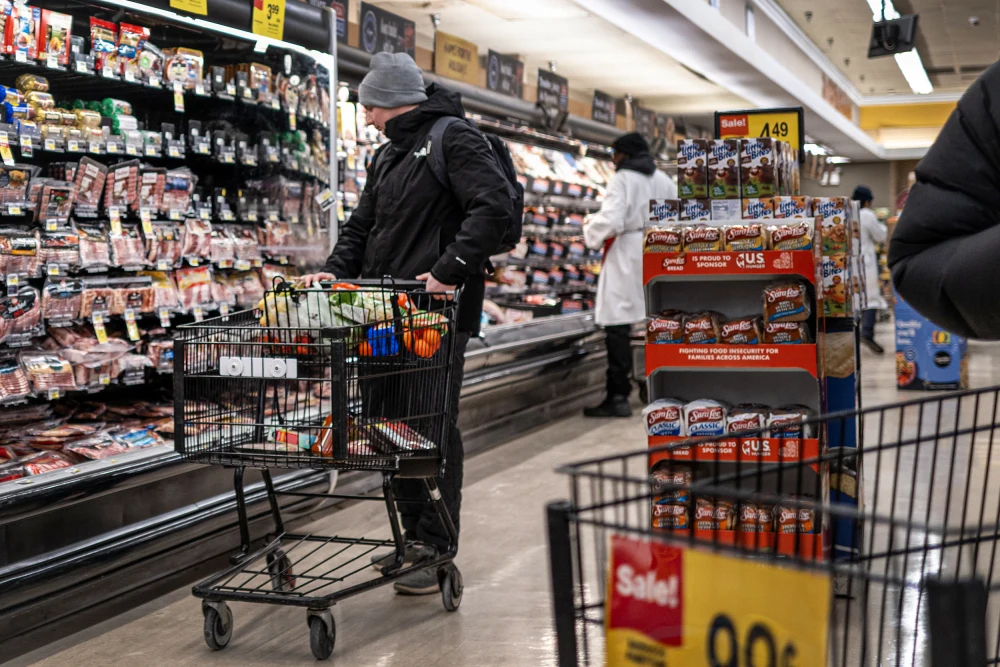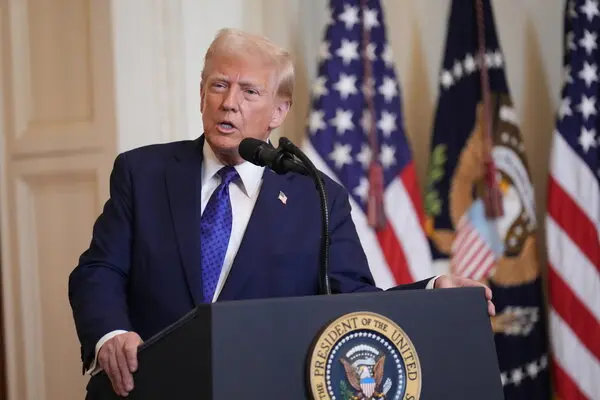Senator Elizabeth Warren, alongside 20 other Democratic lawmakers, has called out President Donald Trump for failing to deliver on his campaign promise to lower grocery prices “immediately” upon taking office. In a letter sent to Trump and shared with NBC News, Warren and her colleagues accused the president of focusing on divisive actions rather than tackling the rising cost of food, a central issue during his campaign.
Unfulfilled Campaign Promises on Food Costs
During his campaign for a second presidential term, Trump made lowering grocery bills a hallmark issue. He frequently used symbolic gestures, like displaying groceries at rallies, to highlight his commitment. However, in the whirlwind of executive orders signed during his first week in office, little has been done to address food costs, according to Warren and other lawmakers.
“Your sole action on costs was an executive order that contained only the barest mention of food prices,” the letter stated. Instead of addressing food affordability, the administration’s memo referred to eliminating “coercive climate policies” to reduce costs of living, with no specific policies aimed at lowering food prices.
The Rising Cost of Groceries
Data from the Labor Department reveals that grocery prices rose by 1.8% from December 2023 to December 2024, with eggs seeing a staggering 36.8% price increase due to the ongoing bird flu crisis that has decimated poultry populations. Critics argue that corporations often exploit such crises to hike prices unnecessarily, further straining families already struggling with inflation.
About 9 in 10 voters have expressed concern over rising grocery costs, making this a pressing issue. Yet, Democratic lawmakers contend that Trump has prioritized other agenda items, including pardoning January 6 attackers and renaming landmarks, instead of addressing this economic pain point.
Democratic Push for Action
Warren and her allies are urging Trump to take concrete steps to tackle food prices, including measures to curb price gouging. In the letter, the lawmakers pointed to existing tools within federal agencies like the Federal Trade Commission (FTC) that could be used to promote competition, enforce stricter regulations on price manipulation, and reduce corporate profiteering.
“If Donald Trump is serious about working to lower grocery prices, he should buckle down, pick up these tools to lower egg prices, and deliver on his promises,” Warren said.
Representative Jim McGovern echoed her sentiment, saying, “We are ready to work with him to actually deliver results, not just empty rhetoric.”
Corporate Price-Gouging Under Scrutiny
Economic experts suggest that combating price-gouging by powerful corporations could significantly alleviate rising food costs. Lindsay Owens, executive director of the Groundwork Collaborative, emphasized that focusing on competition, supply chain investments, and cracking down on pricing tactics like surveillance pricing should be top priorities.
“Families expect President Trump to make good on his promises,” Owens said. “But if his first slate of executive orders is any indication, he’s positioning himself to fail.”
Public Pressure and Political Fallout
The Democrats’ letter highlights growing frustration among voters who are seeing little action on the affordability of basic necessities. In December, Trump admitted to Time magazine that bringing grocery prices down would be “very hard,” a stark contrast to his campaign promises.
“It’s hard to bring things down once they’re up,” he said.
This acknowledgment, combined with limited action on the issue, may challenge Trump’s ability to maintain voter confidence on one of the key issues that defined his campaign.
What’s Next for Food Prices?
With food prices continuing to rise and public dissatisfaction mounting, the Trump administration faces increasing pressure to take meaningful steps. Lawmakers and advocates are calling for immediate action, including using federal agencies to regulate corporate practices and ensure fair pricing in the food industry.
Whether the administration will prioritize this issue remains uncertain, but as Warren noted in her letter, families across the nation are watching closely, waiting for the president to make good on his promises.
Conclusion
Grocery prices remain a critical issue for American households, with Democrats challenging Trump to take decisive action. As food inflation persists, meaningful policy changes will be necessary to address both the immediate cost-of-living crisis and long-term economic stability for families.
Call to Action:
Stay informed about food prices and federal policies impacting affordability. Share this article to encourage meaningful conversations about economic accountability and corporate regulation.














